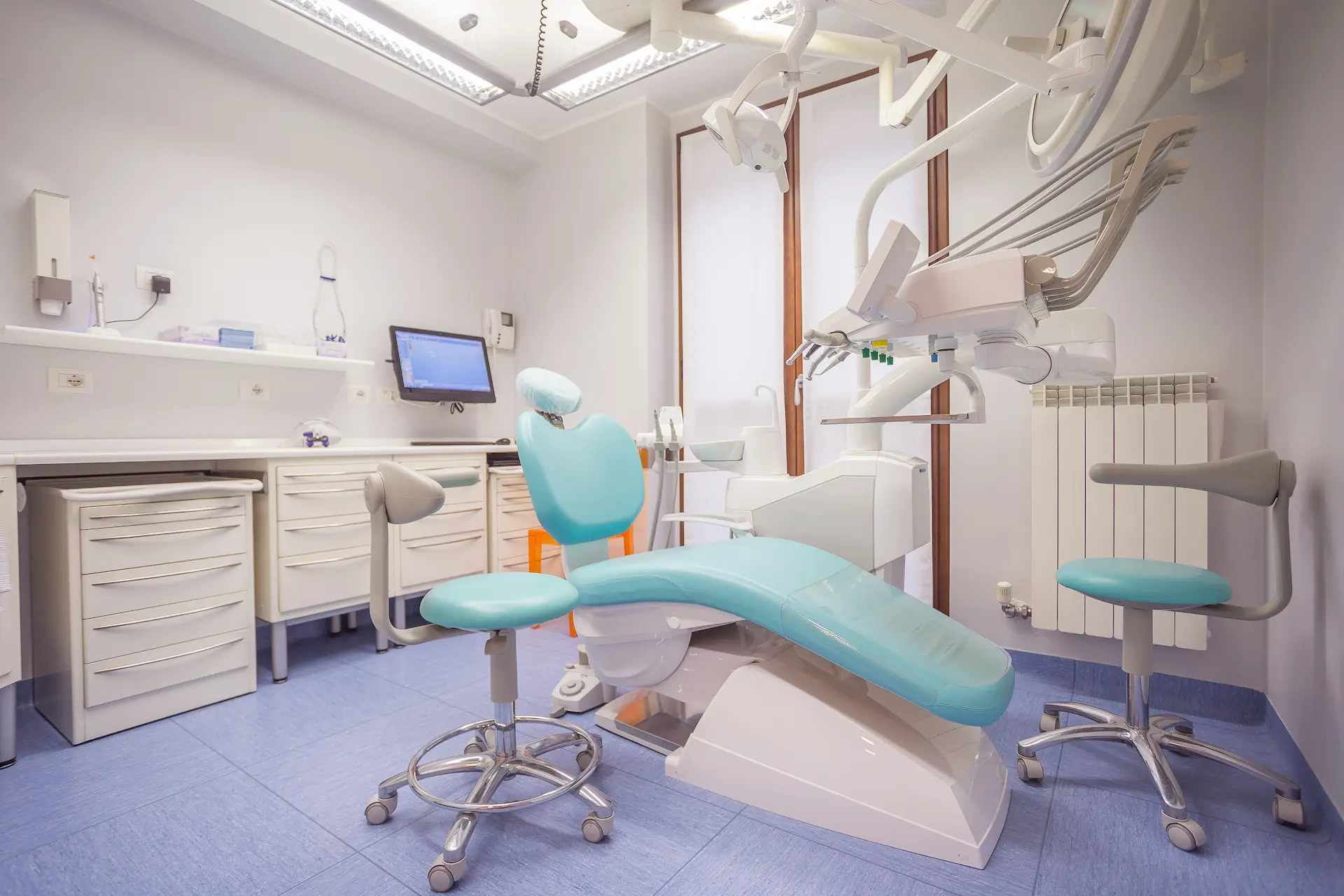Dental Implants in Chicago, IL
Permanent Tooth Replacement for a Natural-Looking Smile
Missing teeth can affect more than just your appearance—they can compromise your bite, speech, and overall oral health. At Ramy Bahu, DDS, we restore smiles with high-quality dental implants, offering long-term solutions for patients who want to replace missing teeth with comfort, stability, and confidence.
Located in the heart of downtown Chicago, our practice serves patients from Streeterville, River North, South Loop, and surrounding communities who are ready to experience the life-changing benefits of implant dentistry.
.jpg)
What Are Dental Implants?
Dental implants are titanium posts that are surgically placed into the jawbone to act as artificial tooth roots. Once healed, they provide a strong, stable foundation for replacement teeth, including single tooth implants, bridges, and full-arch solutions.
Implants are considered the gold standard for tooth replacement because they:
- Replace the entire tooth structure, not just the crown
- Prevent bone loss and preserve facial structure
- Restore full chewing function and bite alignment
- Look and feel like natural teeth
- Do not affect neighboring healthy teeth
- Can last for decades with proper care
We work closely with trusted specialists for the surgical phase and provide meticulous dental implant restorations in our office using advanced techniques and materials.
Single Tooth Implants
If you’re missing just one tooth, a single tooth implant is a precise and permanent solution that blends seamlessly with your natural smile. This option involves:
- Surgical placement of a titanium implant post into the jaw
- A healing period during which the implant integrates with the bone
- Placement of a custom-designed crown to match your adjacent teeth
Unlike a traditional dental bridge, this approach doesn’t require reshaping the neighboring teeth and helps preserve jawbone density.
Dental Implant Restorations
If you already have implants but need the visible portion—the crown, bridge, or denture—repaired or replaced, we offer expert dental implant restorations. Whether your current restoration is worn, loose, or damaged, we can restore its function and appearance.
Types of implant restorations we provide:
- Implant crowns – for individual implants
- Implant-supported bridges – for multiple adjacent missing teeth
- Implant-supported dentures – for patients needing full-arch replacement
- All-on-4 dental implants – full-mouth solutions with minimal implants
Every restoration is custom-fabricated for comfort, strength, and esthetics. We use digital impressions and premium materials to ensure an accurate fit and lifelike results.
Are You a Candidate for Dental Implants?
Ideal candidates for dental implants should have:
- One or more missing teeth
- Healthy gums and sufficient bone density
- Good oral hygiene habits
- No uncontrolled medical conditions affecting healing
If bone loss is present, we may recommend bone grafting or ridge augmentation to rebuild the foundation for implant support. We’ll perform a detailed evaluation and use digital imaging to determine the most appropriate treatment path.
The Dental Implant Process
The implant process typically involves multiple stages but offers permanent, predictable results:
- Consultation and Treatment Planning
We assess your oral health, take 3D images, and develop a personalized treatment plan. - Implant Placement (Performed by Specialist)
A trusted oral surgeon or periodontist places the titanium post into your jawbone. - Healing and Integration
Over the next several months, the implant fuses with your bone in a process called osseointegration. - Abutment and Restoration
Once healing is complete, we place an abutment (connector) and attach your custom implant restoration—a crown, bridge, or denture.
We coordinate all phases of care and ensure your restoration fits beautifully and functions naturally.
Why Choose Ramy Bahu, DDS for Your Implant Restoration?
Dr. Ramy Bahu, D.D.S. has decades of experience in full-mouth and cosmetic restorations. His precision, attention to esthetics, and commitment to patient comfort make him the trusted provider for custom implant crowns and prosthetics in downtown Chicago. Whether you’re restoring a single tooth or rebuilding your entire smile, Dr. Bahu ensures each restoration feels natural and looks seamless.
Related Implant Services
To support long-term success and complement your implant treatment, we may recommend:
- Dental Cleanings and Exams – to maintain gum and implant health
- Occlusal and Sports Mouthguards – to protect implants from grinding or impact
- Full & Partial Dentures – for patients not eligible for full implant solutions
- All-on-4 Dental Implants – for stable, full-arch tooth replacement
FAQs About Dental Implants
Lorem ipsum dolor sit amet, consectetur adipiscing elit. Suspendisse varius enim in eros elementum tristique. Duis cursus, mi quis viverra ornare, eros dolor interdum nulla, ut commodo diam libero vitae erat. Aenean faucibus nibh et justo cursus id rutrum lorem imperdiet. Nunc ut sem vitae risus tristique posuere.
How long do dental implants last?
With proper care, dental implants can last 20+ years or even a lifetime. The restorations (crowns or bridges) may need replacement after 10–15 years depending on wear.
Is the implant procedure painful?
The placement is typically performed under local anesthesia or sedation and is well-tolerated. Recovery involves mild discomfort that can be managed with medication.
Can implants fail?
Implant failure is rare but can occur due to infection, bone loss, or smoking. We take careful steps to evaluate risk factors and ensure proper healing.
Are implants covered by insurance?
Some plans may cover part of the restoration phase. We’ll help you understand your benefits and discuss financing options, including our SmileMore Dental Savings Plan.
What if I already have an implant but need a new crown?
We specialize in dental implant restorations and can replace, adjust, or redesign implant crowns and bridges to improve their fit and function.
Schedule a Dental Implant Consultation in Chicago
If you're ready to restore your smile with long-lasting, natural-looking dental implants, the team at Ramy Bahu, DDS is here to guide you through every step of the process. From initial planning to your final restoration, we deliver personalized care and exceptional results.
Call (312) 943-6444 or request an appointment online today. We proudly serve patients in Streeterville, River North, South Loop, and throughout downtown Chicago.

